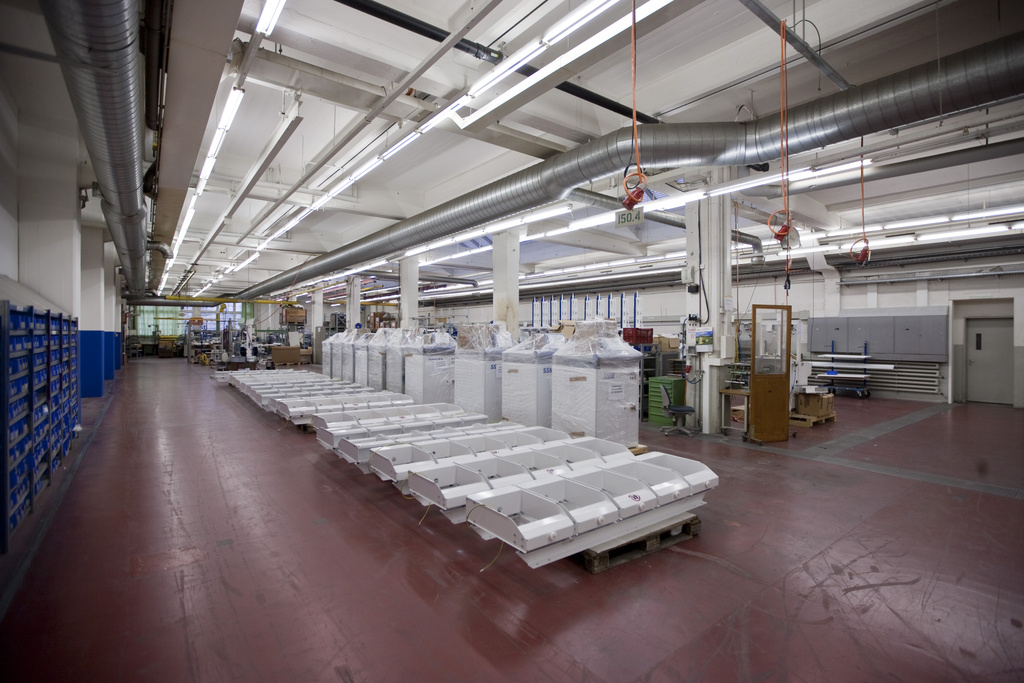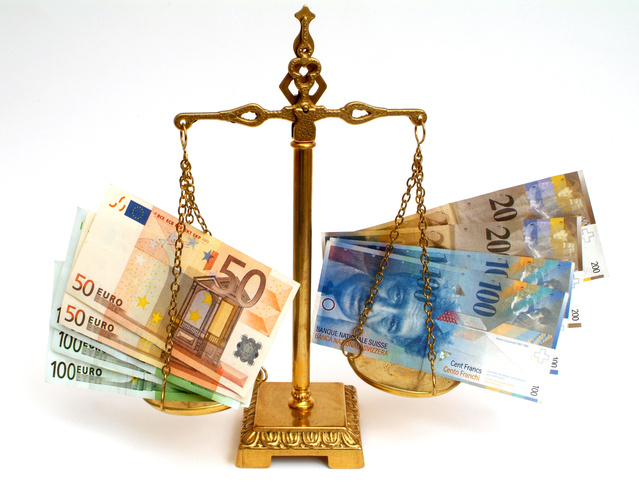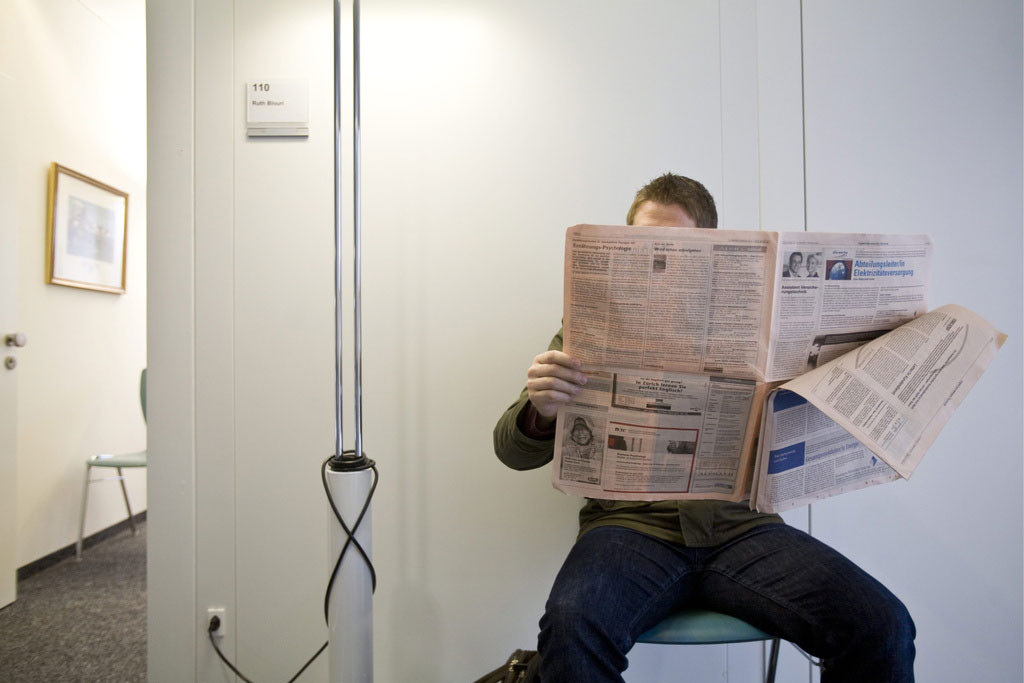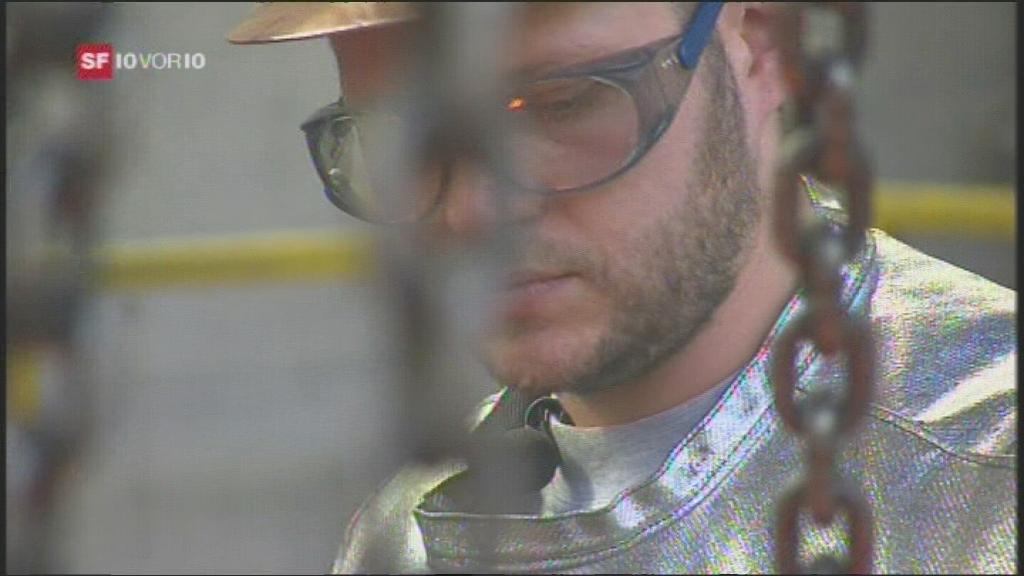Engineering exporters stung by recession

Swiss electrical and mechanical engineering companies suffered a 20 per cent drop in sales and saw orders shrink by a quarter during a turbulent 2009.
The sector was hit by a downturn in export markets, particularly in the European Union that took 23 per cent less goods than the previous year. However, many firms are confident that 2010 could see a rebound in trade.
Swissmem, the industry’s umbrella group, reported the depressing figures at its annual news conference in Zurich on Tuesday. Sales were hardest hit for exporters (down 21.2 per cent), but the domestic market also faltered (down 16.6 per cent).
The stark news summed up the depressed state of Switzerland’s export industry last year that saw a 22 per cent, or SFr26 billion ($24 billion), fall in overall trade. Swissmem’s 290 members account for 40 per cent of all Swiss exports.
“Our industry suffered in the last year like never before,” Swissmem president Johann Schneider-Ammann summed up on Tuesday. “Worldwide, our industry has been a victim of the global recession.”
Companies specialising in metals and machine building suffered most of all while the electrical engineering and precision instruments firms took a less substantial knock.
Market forces changing
The worst hit market – the EU – also happens to be the largest exporter, consuming two-thirds of Swiss goods. By contrast, Asian exports saw only an 11.4 per cent retraction last year, but China accounts for just over four per cent of goods shipped abroad.
Several economic commentators have urged Switzerland to edge away from its dependency on the traditional European market and find new growth in developing economies.
“Swiss exporters have to diversify away from the slow, sluggish European market and get more clout with the emerging economies where their market share is currently tiny,” Julius Bär chief economist Janwillem Acket told swissinfo.ch late last year.
Schneider-Ammann pointed out that Switzerland’s reputation for quality had already carved it out a foothold in China, particularly in the fields of watch making and precision instruments for the machinery and medical sectors.
He said Switzerland exports as many precision instruments to China as the United States and more than France, Spain or Britain.
A Swissmem survey of members found that more than half were optimistic that exports would pick up in the later part of 2010. This optimism came in part from better conditions in December that still saw sales and orders shrinking from the same month in 2008, but at a slower rate than for the whole year.
Secure jobs
However, more than a third of member firms forecast conditions to remain the same while optimism for a better outlook shrank to 38 per cent when looking at the first three months of this year.
Swissmem reported that the outlook on credit was a lot better than it was a year ago, but pressure on jobs is persisting with capacity running at only 77.5 per cent – ten per cent lower than average over the past decade.
By the end of September last year, the sector had lost 21,500 employees or six per cent of its workforce from 2008.
The organisation made a renewed call for an extension of the government subsidised shortened working hours scheme. The system, that relies on the state and companies jointly making up the wages of workers on reduced hours, is estimated to have saved up to 20,000 jobs in 2009.
Schneider-Ammann asked for the temporary scheme to be increased from 18 to 24 months, taking it into next year.
“This extension would make it more secure for companies to plan ahead, knowing that they could retain these jobs and related know-how in such uncertain times,” he said.
Matthew Allen, swissinfo.ch
Swissmem encompasses 290 companies in the electrical, metallurgical and machinery industries. Most members have fewer than 250 employees, but big names include ABB, Sulzer and Siemens Switzerland.
These industries employ some 350,000 people and generate around 40% of all Swiss exports to the value of SFr80 billion.
Besides machinery, precision tools and electronic goods, companies also work in the textiles, chemicals, auto parts and food industries.
Two thirds of exports end up in the EU, with Germany the biggest market. Exports to Germany shrank 23.7% in 2009, to France 24.9% and to Italy 29%.
Exports to the US – the second largest country of importance to Swissmem members, fell 21.7%.
Asia did not see such a dramatic fall (11.7%). China took 7.2% fewer goods, South Korea -5.2% and India -10.9%.
The metallurgical sector saw the biggest fall in exports (31.3%) followed by machinery (25.9%). Electrical engineering exports fell by a comparatively less 16.2% and auto industry specialists saw a 12.1% reduction.

In compliance with the JTI standards
More: SWI swissinfo.ch certified by the Journalism Trust Initiative





You can find an overview of ongoing debates with our journalists here . Please join us!
If you want to start a conversation about a topic raised in this article or want to report factual errors, email us at english@swissinfo.ch.